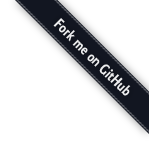

4CAT is a research tool that can be used to analyse and process data from online social platforms. Its goal is to make the capture and analysis of data from these platforms accessible to people through a web interface, without requiring any programming or web scraping skills. Our target audience is researchers, students and journalists the world over interested using Digital Methods in their work.
In 4CAT, you create a dataset from a given platform according to a given set of parameters; the result of this (usually a CSV or JSON file containing matching items) can then be downloaded or analysed further with a suite of analytical 'processors', which range from simple frequency charts to more advanced analyses such as the generation and visualisation of word embedding models.
4CAT has a (growing) number of supported data sources corresponding to popular platforms that are part of the tool, but you can also add additional data sources using 4CAT's Python API. The following data sources are currently supported actively:
- 4chan
- Bluesky
- Telegram
- Tumblr
The following platforms are supported through Zeeschuimer, with which you can collect data to import into 4CAT for analysis:
- Instagram (posts)
- TikTok (posts and comments)
- 9gag
- Imgur
- Gab
- Douyin
- Truth Social
- RedNote/Xiaohongshu
It is also possible to upload data collected with other tools as CSV files, or media files (audio, video and images). The following tools are explicitly supported but other data can also be uploaded as long as it is formatted as CSV or in a common media file format:
- Facebook and Instagram (via CrowdTangle or Facepager exports)
- YouTube videos and comments (via the YouTube Data Tools)
- Weibo (via Bazhuayu)
A number of other platforms have built-in support that is untested, or requires e.g. special API access.
Here is a list of 4CAT-related resources:
General reference information
- The 4CAT paper: in which we outline what 4CAT is and why it exists. Please cite us :-)
- Contact us at 4cat@oilab.eu. Note that we unfortunately cannot provide you with access to our 4CAT server unless you are an employee or student at the University of Amsterdam.
For all users
There is currently no public 4CAT server that we can offer access to. The links in this list more or less assume that you have access to a 4CAT server that is run by e.g. your university. You can also run 4CAT yourself; see the list at the bottom of the page for the relevant links.
- Video tutorials: how to create a dataset and run an analysis, and how to install 4CAT on your own device using Docker.
- Exercises: recipes to try out various analyses and get a feel for what 4CAT can and cannot do.
- A Media Analysis Worksheet outlining a number of useful analyses that can be run on image or video datasets.
- A Twitter Worksheet outlining how to use the Twitter v2 API with 4CAT (one of our most popular use cases).
- Zeeschuimer: a companion browser extension to capture data from TikTok and Instagram and upload it to 4CAT.
- Zeeschuimer worksheet: instructions and explainers on how to use Zeeschuimer to capture data for your research.
For advanced users
- Source code: on GitHub.
- Installation instructions (via Docker, or installing from source): via our GitHub wiki.
- The DMI Service Manager is a separate tool you can run on a server capable of running machine learning models (e.g. LLMs) and connect to 4CAT, to run ML-powered processors in 4CAT itself.
- Read more about 4CAT's perspective on, and affordances for, research ethics and data privacy
- More reference information on our GitHub wiki.
